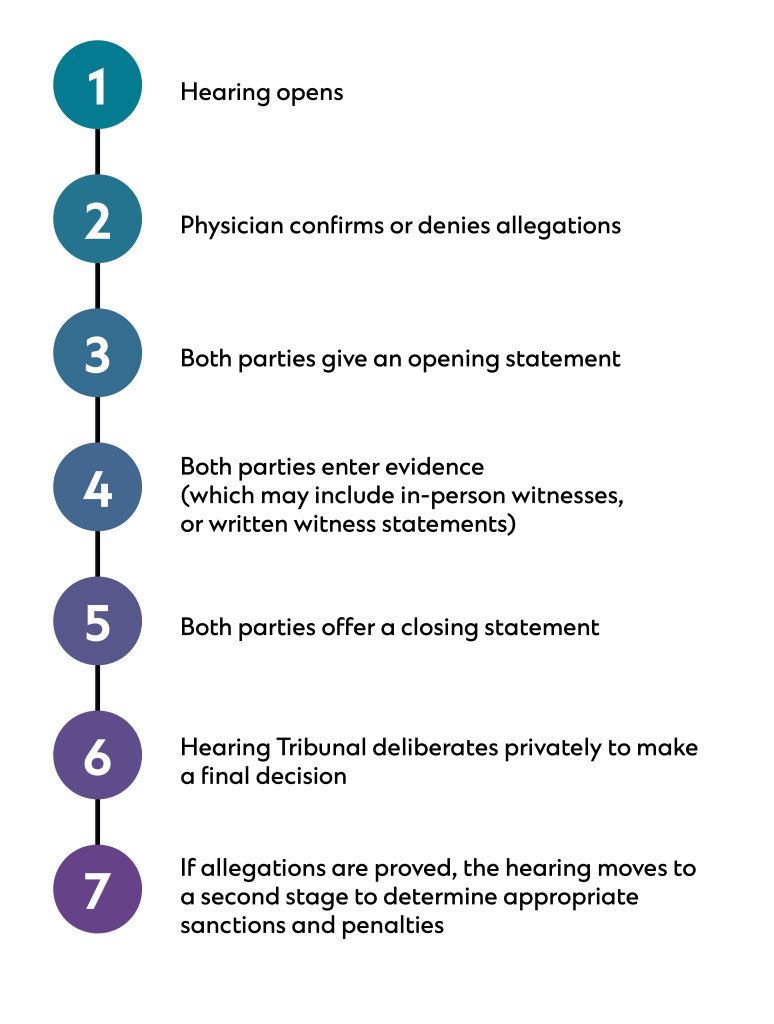What is a hearing?
When a complaint is submitted to CPSA, our Complaints Director may decide to the refer the matter to a formal disciplinary hearing.
This can happen when an investigation suggests the care provided by the regulated member seriously breached a standard of practice, or the issues raised in the complaint relate to public safety.
A very small number of complaints proceed to a disciplinary hearing, recent numbers suggest less than two percent of complaints end up before a hearing tribunal. This is not because we don’t take complaints seriously, but because the Health Professions Act (HPA) provides several avenues through which health regulators can resolve complaints, depending on the individual circumstances. This includes dismissal, various forms of resolution, investigation and referral to a hearing.
The hearing process
During a hearing, legal counsel acting on behalf of CPSA’s Complaints Director presents the allegations and evidence against the physician, similar to the role of a trial prosecutor. While the complainant is not a party to the process, they may be asked to appear as a witness, to testify or provide a statement during the proceedings. The physician (or their legal counsel) can call witnesses and present evidence in their defense.
Deciding whether or not a physician is guilty is the role of an independent hearing tribunal. Made up of an equal number of physician and public members, a tribunal carefully considers all the evidence provided to make their decision.
If a physician is found guilty of unprofessional conduct, the tribunal also determines what sanctions to impose as outlined in the Health Professions Act (HPA).
Possible sanctions may include:
- Conditions on the physician’s practice permit (e.g., a chaperone requirement, limiting the number of patients they can have, or restricting the medical procedures they can perform).
- A monetary fine.
- A requirement to participate in a practice assessment or complete remedial training.
- Suspension or cancellation of the physician’s practice permit.

Attending a hearing
Most CPSA hearings take place virtually and under the HPA are open to the public (unless a request is made by the parties to close the hearing). Attendees must register ahead of time by contacting the Hearings Director’s Office (HDO).
Before the hearing, attendees must sign an undertaking (provided by CPSA when you register), agreeing not to record the proceedings (audio or video).
Once you sign the undertaking and return it to CPSA, you will be emailed a Zoom link a few days prior to the hearing to observe the proceedings online.
Attendees cannot address the hearing tribunal, and are asked to leave their cameras off and their microphones muted throughout the hearing.
Questions about hearings?
Phone: 780-969-4961
Toll-free in Canada: 1-800-561-3899 ext. 4961























